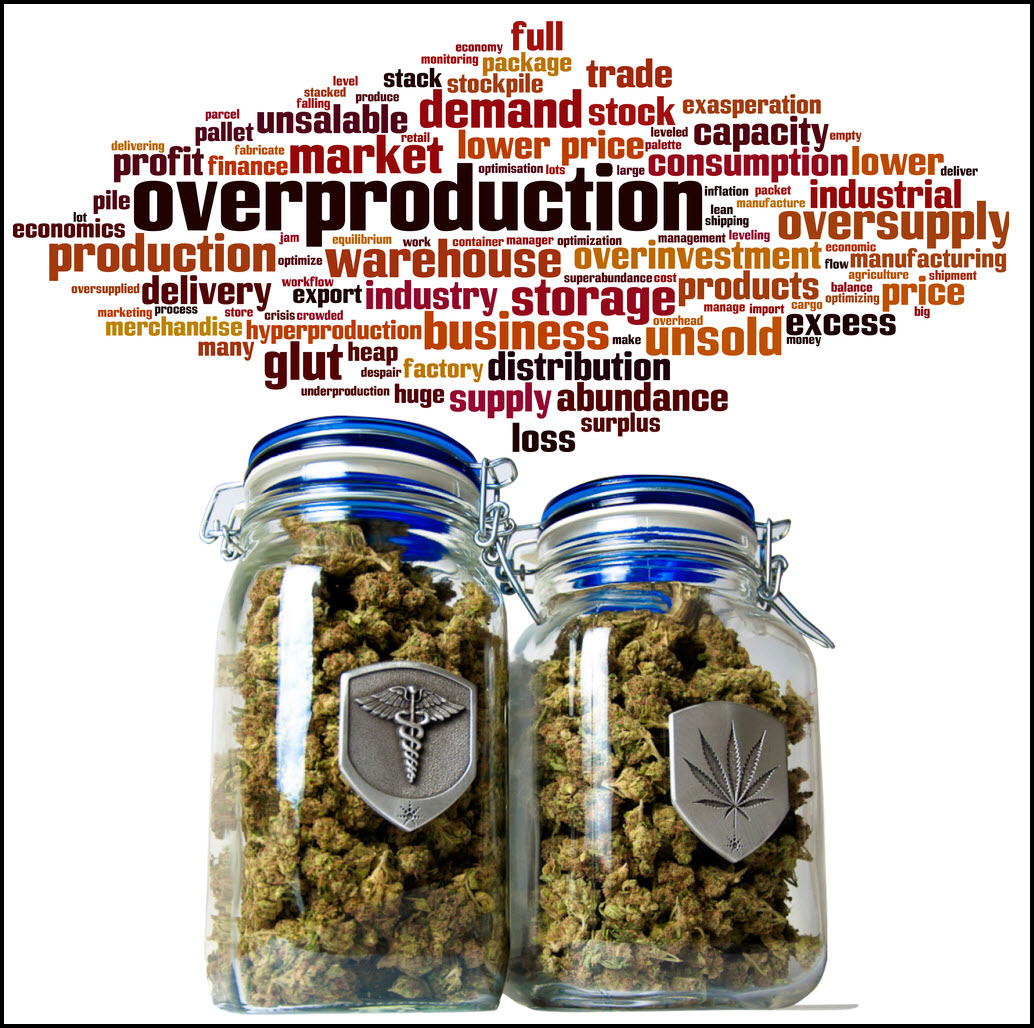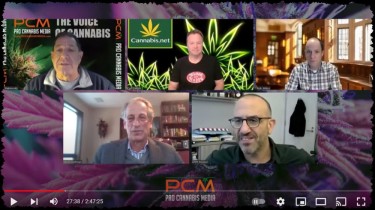
Will oversupplied markets wipe out smaller, state markets if interstate marijuana trade is legalized?
Much has been written, especially on Cannabis.net, about the benefits of the interstate marijuana and hemp trade with full state legalization of the plant, but many small market growers in places like New York and Massachusetts fear that the over-supplied areas of the West Coast will inundate theirs Markets with cheaper hemp and cannabis. In the transition to a fully efficient price market at the national level, will the oversupply of cannabis and hemp on the West Coast lead to massive price drops for the product when it is shipped to the East Coast?
Cannabis farmers in New York fear being sidelined by the newly formed recreational cannabis industry. Their main concerns are growing around the notion that the industry will be saturated with large cannabis production companies and that smallholder farmers like themselves will have little or no support. The entry of large corporations will trigger a competition that small hemp farmers cannot win.
The medical cannabis industry had a place for social justice participants and small business owners, but the recreational industry is an entirely different game. Not only will the new manufacturing companies retain a large percentage of the recreational users, but they could also try to break into the medical industry.
Pam Chmiel, a reporter at GreenEntrepreneur, recently interviewed New York President of the Cannabis Growers and Processors Association, Allan Gandelman. In the next few paragraphs I will highlight the key points raised during the interview. (Full disclosure, GreenEntrepreneur syndicates Cannabis.net content on its website)
About Allan Gandelman
Gandelman has taken steps behind the scenes to ensure that small business owners have a level playing field with big business owners to compete for customers and international transactions. He has been a hemp farmer for a long time, he is a co-founder of the Head and Heal brand. He advocates aid and cannabis reform whenever and wherever he can. His current focus is on ensuring that other small hemp farmers and social justice entrepreneurs are fully prepared when the recreational industry starts operations.
Allan’s take on federal legalization and interstate trade
During the interview, Pam and Gandelman discussed the threat of state legalization and the interstate trade in cannabis products.
Gandelman said he felt that interstate trade and state legalization were not needed at the moment. According to him, interstate trade through a profitable enterprise could doom the business of smallholders and members of social justice.
Interviewer Pam used the current oversupply situation in California and Oregon to further substantiate her position that state borders will be opened to international trade. Mr. Gandelman went on to explain that interstate trade helped California and Oregon eliminate this oversupply problem, but would make it very difficult for the recently legalized and intended states to match California’s current production levels. For example, greenhouses and large-scale outdoor growing of cannabis could take years to develop.
Not to mention the fact that these two states are currently selling to their consumers at the lowest prices possible. Only large corporations with substantial financial credit can take on such a challenge. In five years, most states will stand on a single starting line. This would be the best time to do international trade, it could be later, but certainly not earlier than five years.
He also added that MSOs will have to cease operations for a while until farmers in the industry can afford to put in place the right infrastructures to keep their production going. International trade has adverse effects that many people turn a blind eye to. It is high time the government changed cannabis laws to protect small businesses.
Hemp farmers need help transitioning to the new legislation
When asked about New York Farmers’ willingness to legalize, Gandelman said the people positioned for the organization are those who already have greenhouse and extraction facilities in the state. These current farmers have hemp and CBD manufacturing facilities that have been in operation for three to four years. Even so, they would still find it very difficult to compete against the incoming large corporations.
“Companies look for the cheapest manufacturers when borders are opened”
Gandelman made this statement when asked about the international trade in cannabis. He explained that it would make a lot more sense if partnerships with CPG brands were used to make their products. If international trade is encouraged, many will lose money. As the medical cannabis industry developed, the interstate trade in hemp and CBD was allowed and ended badly. At that time, almost all of the planets were overgrowing because it was cheap, and then they had to sell their hemp CBD for pennies a dollar to reduce their oversupply. The same thing would happen if the same were allowed for adult cannabis.
He repeated that in the case of international trade, states would rather import from Colombia than from neighboring states. Colombia grows cheaply; a dollar for a pound. He talked about his brand known as Hemp and Heal. The New York company produced, among other things, hemp oil. With his company as a focus, he said these partnerships will be a more sensible business model compared to interstate trade. Hemp and Heal are one of twelve existing hemp farms with extraction and distribution infrastructure, so CPG brands are calling to inquire about partnerships.
Social Justice Programs in New York
Allan Gandelman is very active in promoting social justice programs across the state.
In his interview, he mentioned that the state was working to set up numerous training and education programs for social justice initiatives. They have an affiliation with the Hope Program in the Bronx, where formerly incarcerated people are equipped with skills related to budgeting, delivery services, pharmacies, and cannabis growing practices. The state will also fund the education and training programs of selected applicants for social justice.
He added that cannabis degrees are being added to university programs across the state. Syracuse University already has a secondary degree in cannabis.
Bottom line
The state is engaged in preparatory activities for the implementation of the Recovery Act. Farmers and other operators place their brands at the forefront to generate high revenue. The New York Cannabis Growers and Processors Association’s primary mission is to organize educational events, better connect farmers, and ensure that even the smallest voices in the industry are heard by everyone.
IS ALREADY SENDING MARIJUANA LEGALLY VIA A STATE LINE, SEE BELOW …

IS THE INTERSTATE MARIJUANA TRADE REALLY LEGAL NOW? PROFESSOR MIKOS SPEAKS!

Post a comment: